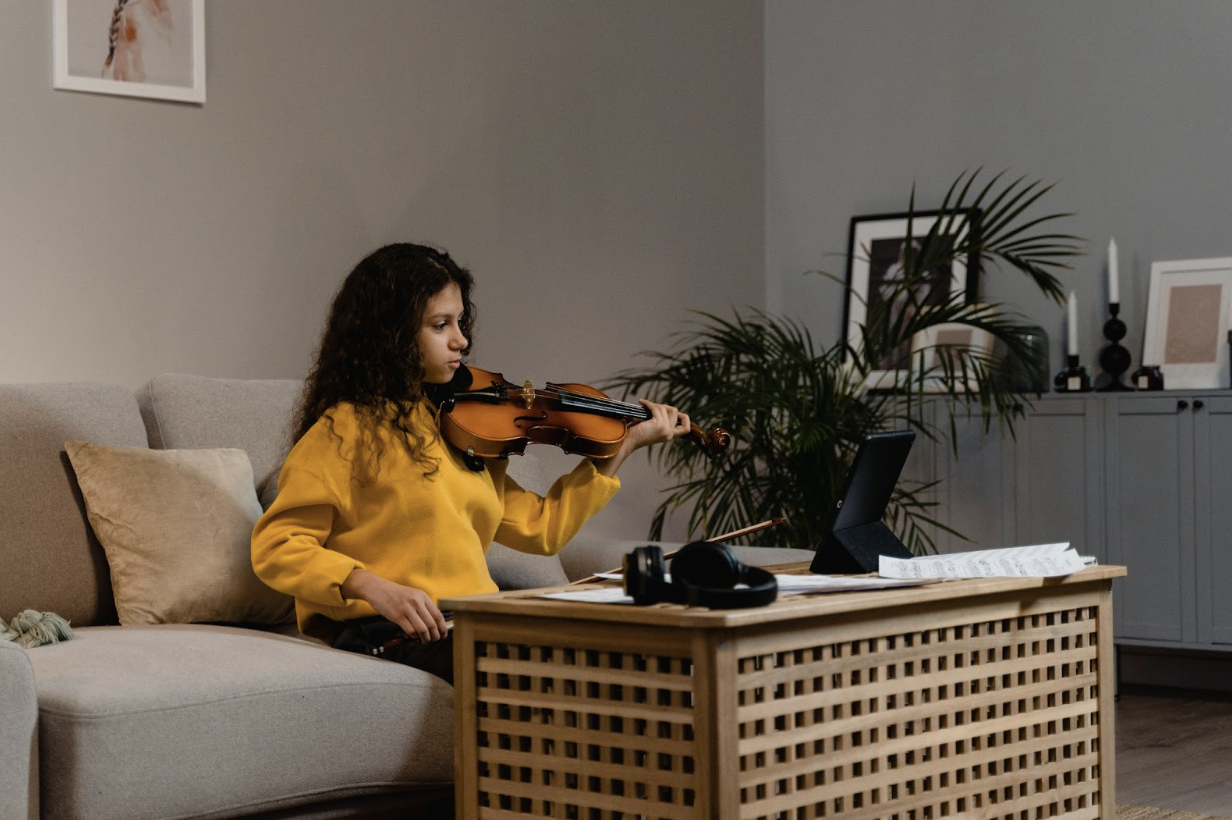How to Build Confidence in Struggling Music Students6 min read
Learning any new skill requires a lot of dedication and discipline. Nobody masters anything overnight, so it is essential to decide to stick with something and keep going. However, it can get difficult to continue moving forward when you are stuck and struggling. This can significantly affect an individual’s self-confidence.
Contents
Why is Confidence So Important?
Confidence helps us to feel secure and sure about ourselves and our abilities. It helps us to move forward and discover unique things about ourselves. A confident person will always believe in himself and be ready for every challenge thrown his way. He will not hold himself back from trying new ideas. On the other hand, a lack of Confidence will hinder a person from achieving their goals and keep them from exploring new things. As human beings, all of us have struggled with Confidence at some point in our lives.
Music is one of the many areas where people tend to struggle with their Confidence. Whether it is a difficulty with music lessons or performing in front of an audience, a struggle of any sort makes way for frustration to creep in. The student not only starts to lose interest in what he is learning gradually but can also stop enjoying the process altogether. And no music teacher wants that for their students. This is why you must help struggling students build their Confidence.
How does Confidence Help Students?
Confidence is something that everyone will benefit from, irrespective of who they are. It helps an individual to trust in themselves and their qualities. It also helps to understand one’s abilities as well as recognize flaws. Having healthy Confidence is crucial for students of music.
Confidence benefits music students in the following ways:
- Better Motivation
- Less Anxiety
- More Resilience to Handle Setbacks
Ways to Build Confidence in Struggling Students
Irrespective of which area your student is struggling in, it is essential to help them build their Confidence. Here are a few ways to nudge them in that direction.
-
Find out what your student’s self-talk looks like
Self-talk is nothing but the internal monologue of an individual. Almost every human being engages in self-talk from a very young age. Also known as the inner voice, the self-talk of an individual can either help to support, encourage and uplift them or discourage and demean them. This is why it is so necessary to have healthy and balanced self-talk.
When a person speaks positive things to himself, he can back himself up when a difficult situation arises. However, negative self-talk can seriously affect a person’s self-esteem and Confidence. Extreme negative self-talk can also prove harmful to the student and his relationships with people.
Most people, including children, are not fully aware of how easily negative self-talk can take over their minds. Sitting your student down and discussing how they talk to themselves will help you get a better understanding of what they are feeding their minds. This will give you an idea of what steps to take next.
-
Please help them to practice self-acceptance and positive self-talk
Please remind your student that their worth as a person is not attached to their achievements, successes, or failures. Please encourage them always to back themselves up even when no one else is. Explain the importance of self-love and self-acceptance and encourage them not to be so harsh on themselves but rather evaluate their strengths and weaknesses from a more rational perspective.
Also, explain the importance of positive self-talk to your student. Showing them the difference between positive and negative self-talk is significant for them to understand how it can affect them in their music education and their life in general. Ask them to monitor their self-talk by paying attention to what they tell themselves. And remind them to substitute negative and self-debasing statements with positive and encouraging ones. It is also essential for them to get rid of phrases such as “I can’t do it,” “I’m not good at this,” etc. Reassuring them that it is normal to mess up and make mistakes when learning music helps them not be overly critical of their weaknesses.
Finally, show them that you are always there to guide and back them up. Teach them to be kinder and more loving to themselves, just like they would be with a close friend or a loved one.
-
Ask them to set manageable goals
Often setting goals for ourselves that are too far-fetched can result in frustration and demotivation when we are unable to achieve them. Encourage your student to set goals that are small and manageable. You can suggest setting small targets like learning one song in a week or getting a few notes perfected before moving on. This will help boost their Confidence as they achieve their goals one small step at a time. Reassure them that they will only be able to effectively address and overcome their weaknesses when they take on one challenge at a time. Adding too much to their plate will only worsen their situation and make them more anxious.
-
Could you encourage them to practice more?
Sometimes, you need a little more practice to get something right. If you feel like your student isn’t practicing enough between lessons, then bring it up with them. If fear of failure or negative self-talk keeps them from spending a few hours practicing, then encourage them that practice is the place where it’s okay to make mistakes, and it will ultimately pay off when the primary performance comes around.
If your student isn’t able to practice due to a lack of free time, help them come up with a few solutions. But keep reminding them that practice makes perfect.
-
Tell them to remember small achievements
Whenever you find your students struggling and ready to give up, ask them to pause and look back on how far they’ve come. As they look at their progress and remind themselves of every small achievement on the way, they will be more grateful that they didn’t give up and more motivated to carry on.
Appreciating the little things on their journey of music will help them to feel more confident in their abilities and encourage them to keep going.
Conclusion
As you use these techniques to help your music students to build their Confidence, constantly remind them that the most important thing they need to keep in mind is that music itself builds Confidence over time. Since music benefits, a human being in multiple areas, including better social skills, stronger memory, improved mental health, more academic success, and so on, encourage your student to hang in there and enjoy their musical journey.





